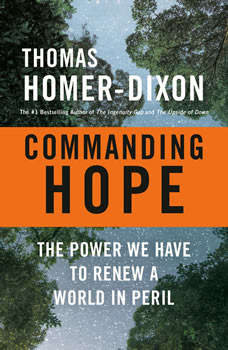Pope Francis. Encyclical on Climate Change and Inequality [Laudato Si] (pp. 37-38). Melville House. Kindle Edition:
60. Finally, we need to acknowledge that different approaches and lines of thought have emerged regarding this situation and its possible solutions. At one extreme, we find those who doggedly uphold the myth of progress and tell us that ecological problems will solve themselves simply with the application of new technology and without any need for ethical considerations or deep change. At the other extreme are those who view men and women and all their interventions as no more than a threat, jeopardizing the global ecosystem, and consequently the presence of human beings on the planet should be reduced and all forms of intervention prohibited. Viable future scenarios will have to be generated between these extremes, since there is no one path to a solution. This makes a variety of proposals possible, all capable of entering into dialogue with a view to developing comprehensive solutions. (p. 37)
61. On many concrete questions, the Church has no reason to offer a definitive opinion; she knows that honest debate must be encouraged among experts, while respecting divergent views. But we need only take a frank look at the facts to see that our common home is falling into serious disrepair. Hope would have us recognize that there is always a way out, that we can always redirect our steps, that we can always do something to solve our problems. Still, we can see signs that things are now reaching a breaking point, due to the rapid pace of change and degradation; these are evident in large-scale natural disasters as well as social and even financial crises, for the world’s problems cannot be analyzed or explained in isolation. There are regions now at high risk and, aside from all doomsday predictions, the present world system is certainly unsustainable from a number of points of view, for we have stopped thinking about the goals of human activity. “If we scan the regions of our planet, we immediately see that humanity has disappointed God’s expectations.”
And now for some other voices:
From Requiem for Modern Politics by William Ophuls
The major advances in civilization are processes which all but wrecked the societies in which they occur.
--Alfred North Whitehead (xv)
Of course, all political paradigms contain inherent contradictions and therefore generate problems that must be solved.The job of the statesman, as opposed to the mere politician, is to preserve the paradigm by dealing effectively with these problems. However, if political wisdom and skill are lacking or if the contradictions are very deep, small problems eventually coalesce into a large problemmatique that challenges the old paradigm. At this point, more reform, however well conceived, no longer suffices and may even make matters worse, so pressure builds up for a fundamental change in regime. (26)
The challenge is to find a way of going beyond a moral individualism without losing the individual along the way. (27)




No comments:
Post a Comment